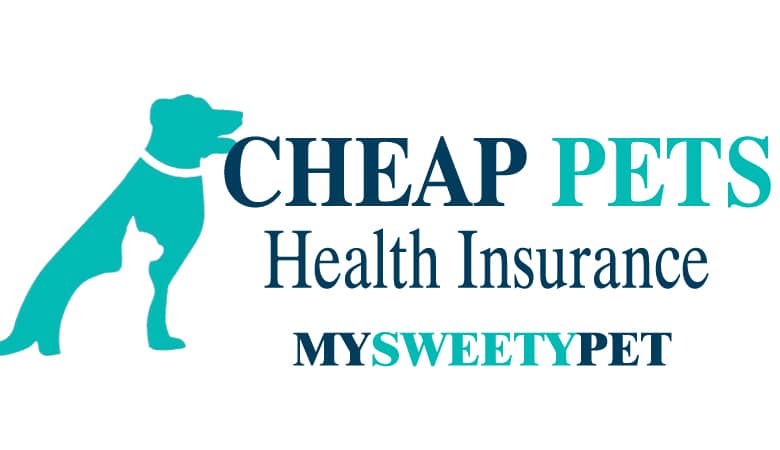When it comes to pet insurance, there is no such solution fit for all. In most cases, your insurance will pay for the medical care you need to recover from an injury. Pre-existing conditions and dental cleanings get frequently excluded from insurance policies. However, some best cheap pet insurance does provide wellness plans that can assist cover non-accident and illness-related vet expenditures, such as immunizations and annual health checks.
What is covered by pet insurance?
Accident and illness policies typically cover an injury or illness that necessitates medical attention. Your pet’s medical expenses, such as casts and x-rays, as well as exam fees, may be covered by this policy.
Medication, psychotherapy, and other forms of treatment may all be covered by your insurance if you’ve got injured in a covered accident.
What is not covered by pet insurance?
Insurance for pets does not cover items that get mentioned as exclusions. Most pet insurance coverage doesn’t cover pre-existing ailments. Exam fees, vaccines, and dental cleanings are generally not covered by accident and illness.
Will my dog or cat be covered if I purchase pet insurance?
Although most pet insurance companies exclusively cover dogs and cats, there are some exceptions.
ASPCA Pet Health Insurance and Nationwide offer plans for different types of pets in our rating. ASPCA Pet Health Insurance covers horses. Birds and other exotic pets get protected coverage Nationwide.
Is dental care included in pet insurance?
An accident and illness pet insurance coverage typically covers extractions and reconstruction due to injuries. However, the plan does not cover preventative treatments like teeth cleanings.
Pets Best Insurance, for example, offers optional wellness programs to aid with the expense of routine dental services and other operations. Healthy Paws, for example, is one insurance that does not provide this extra protection as an option.
Do pet insurance cover spaying and neutering?
Spaying or neutering your pet is not usually covered if you have an accident or illness policy. It’s possible to add wellness coverage options from firms like Pets Best. These can compensate for spaying and neutering costs.
Check the fine print before signing up for a health insurance plan; some plans, such as those offered by Nationwide, do not cover dental cleanings.
Do pre-existing conditions get paid for under a pet insurance policy?
Health issues that occurred before or during the waiting period are typically not covered by pet insurance policies. Even if your veterinarian did not diagnose your pet’s ailment, it generally gets considered a pre-existing condition if it shows symptoms.
Some insurance companies, like Healthy Paws, have a bilateral exclusion, which means you won’t cover a similar injury to your pet’s cruciate ligament if it occurs before enrollment or during the waiting time.
Because of this, most insurers won’t give coverage for pre-existing conditions; however, most will cover needs considered “curable.” After the first year, for example, Nationwide will cover new cruciate ligament or meniscus injuries.
What Is a Pet Insurance Plan?
Pet insurance aims to cover your pets in an accident or illness. It does not cover deductibles and exclusions like other types of insurance. In most cases, you pay your veterinarian directly and then file a claim to your pet insurance provider, who will assess whether or not your claim is valid under the terms of your policy. If your claim gets approved, the insurer will make a payment to you by your policy’s terms.
Your insurance company, for example, will pay back 90 per cent of your veterinary expenses as long as you’re still below your policy’s coverage limitations and you’ve already met your deductible.
Types of Insurance for Your Pet
You’ll be covered by accident and illness insurance coverage if your pet is hurt or ill.Vaccinations, sterilization, spaying and neutering, and nail trimming are all included in most wellness insurance programs.
Dog, cats and other non-domestic species are all included under this policy. Many insurance companies do not cover this type of risk.
Most pet insurance policies cover you in the event of an accident or illness involving your pet. It may get divided into different plans in the event of an accident or illness.
Wellness policies, strategies, and riders are scarce. Firms like ASPCA and Pets Best offer routine care or preventative-care riders, while companies like nationwide offer separate wellness insurance coverage for pets. It’s important to remember that some organizations, such as Embrace, offer an incentive scheme for healthy living. These are not insurance policies or riders but get designed to cover preventative treatment up to a specified sum each year.
Look to determine if the wellness plans offered by different companies get included in insurance policies.
The third sort of pet insurance covers birds, reptiles, and other small animals besides cats and dogs. ASPCA Pet Health Insurance does cover horses, but it does not provide coverage specifically for exotic pets. The only other company on our list that does is Nationwide. Accidents, diseases, and even routine exams get covered under the company’s Pet coverage.
An Overview of the Process for Purchasing Pet Insurance
Select an insurance company for your pet’s welfare. Request a quote by filling out a form. Ask your veterinarian for a copy of your pet’s medical records or schedule a visit.
You can request a quote by filling out a form on the firm’s website once you’ve found a provider that meets your needs. You will get asked several questions about your pet, such as what kind of animal they are (cat/dog), how old they are, where you reside, and whether they have any prior illnesses.
Following the quote, they’ll probably question you further about your pet’s medical history. Where applicable, you’ll have to pick a plan and decide on a deductible, payout cap, and reimbursement rate.
You or your veterinarian will get asked to submit a copy of your pet’s medical records during the application process. Some insurance providers will not require your pet’s medical records until you have filed a claim. Your pet’s pre-existing conditions, whether or not a veterinarian officially diagnosed them, are usually excluded from your insurance coverage.

